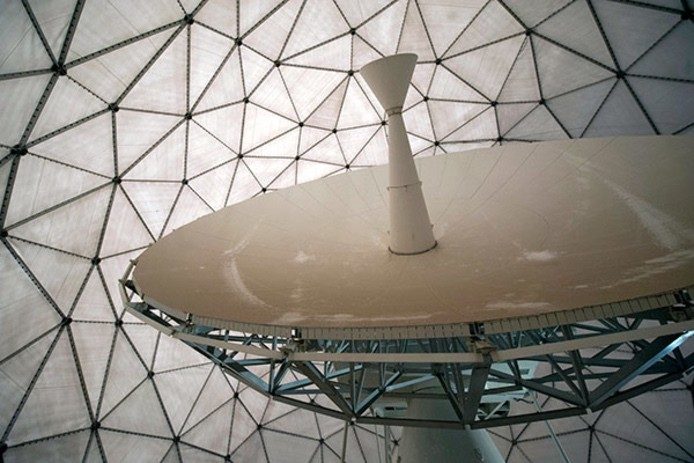The software and hardware development phase of the new GPS ground system program is now complete and the team is moving on to integration and testing, prime contractor Raytheon said in a statement.
With some 1.5 million lines of software code finished for Blocks 1 and 2, the GPS Next-Generation Operational Control System, or OCX, is on track to be delivered in 2021, the firm said.
“GPS OCX is one of the largest, most complex software development programs in the Department of Defense, and we’re now in the home stretch toward full system delivery,” said Dave Wajsgras, president of Raytheon’s Intelligence, Information and Services business.
That complexity nearly killed the program. By 2016 OCX was years behind and costs had surged to $6 billion due, in part, to cybersecurity requirements that were far more challenging than anticipated. In June 2016 the Air Force declared a Nunn-McCurdy breach leaving OCX subject to automatic cancellation unless the Secretary of Defense stuck up for the program and found a way to bring it back in line. DOD threw its weight behind OCX in October 2016 though it was not then clear publically how it would get the program back on track. What the Pentagon had come up with was a SWAT team of private sector computer experts who gave advice on how to address the challenges the program was facing. In part based on their advice, the OCX program was moved to the cloud where programmers were able to work and test code in simulatneous parallel lines of effort instead of sequentially—a key, program-saving decision.
The Air Force recently used the first element of OCX, called Block 0 or the launch and checkout system, to support the launch the of the first modernized GPS III satellite into space in December 2018 and the second in August 2019 — maneuvering them into their proper orbits. Block 0 achieved the highest level of cybersecurity protections of any DOD space system, Raytheon noted in its statement.
For the rest of the year the OCX team will focus on delivery of the system’s new modernized receivers. These receivers will measure and monitor legacy military and civilian signals sent by the current GPS satellite constellation plus the new signals sent by the next-generation GPS IIIs.






